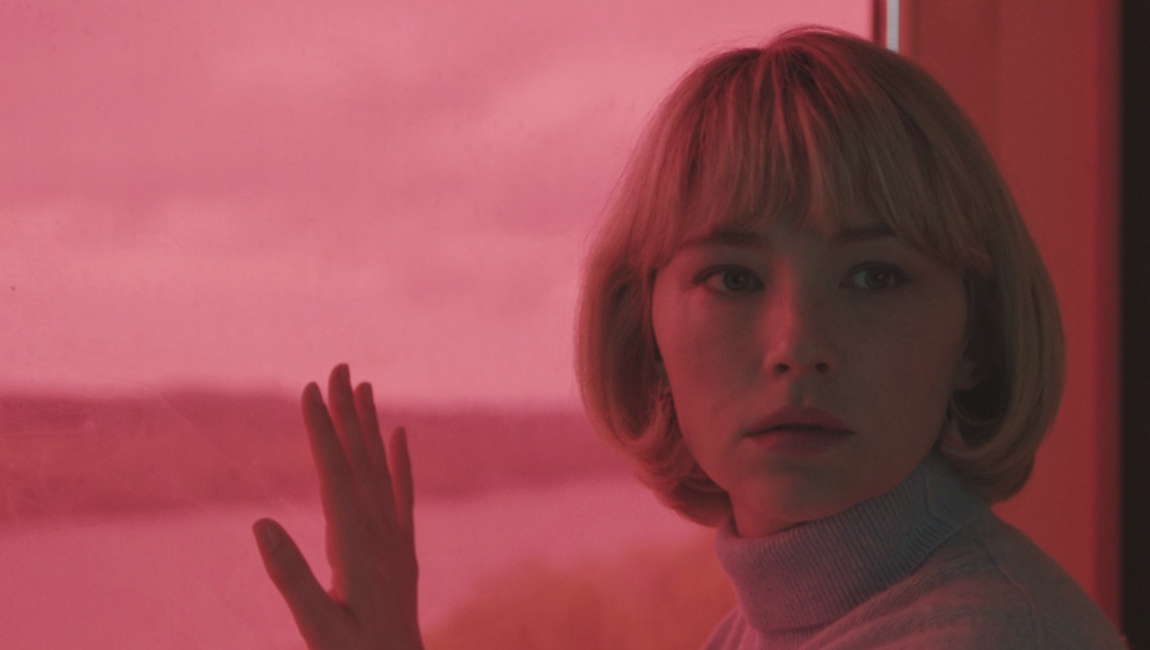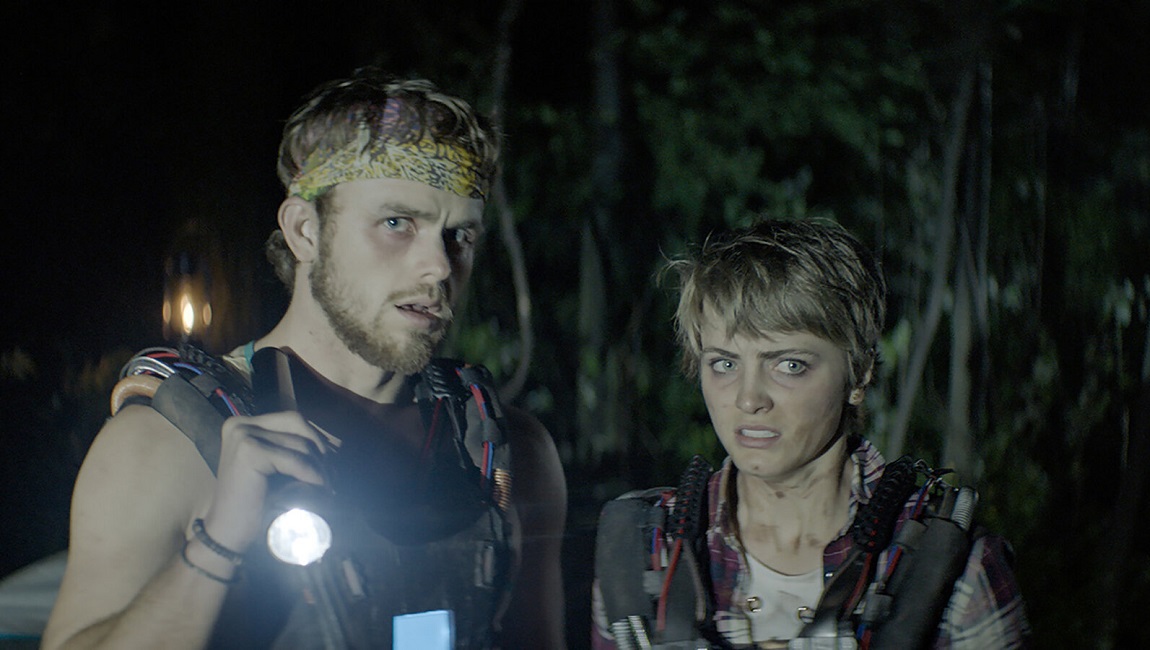Director Carlo Mirabella-Davis recalls such singular voices as Antonio Campos and Michael Haneke with the visually rich, metaphorical horror film Swallow.
Like a lot of recent horror films, Swallow functions as, essentially, a metaphor. But it’s an expansive metaphor, one that updates Todd Haynes’s Safe for a new decade while gradually developing into a larger statement about female empowerment and — ultimately — a very specific personal and political choice, a strategy that recontextualizes much of the preceding narrative. Haley Bennett gives an amazing performance as Hunter Conrad, a young, attractive trophy wife married to a douchebag businessman, Richie (Austin Stowell), who brags about his job while freely basking in the nepotism that has elevated him within his father’s company. Bennett’s is a tricky role; she must be naive but not stupid, cloistered but seemingly in that position by result of her own choice. The film does a good job, then, of suggesting that whatever path Hunter has followed, at the very least, she’s done so by taking the best options that were available to her: Her husband is rich and attractive. Her home is Instagram ready. Her peculiar disorder, Pica (a real thing, which involves eating objects that are not food, like dirt or jewelry or thumbtacks), seems like a perfect extension of a certain kind of social media-based lifestyle branding. Hunter keeps all the objects that she ingests, picking them up out of the toilet, washing them, then arranging each neatly like souvenirs. This act simultaneously represents an ultimate form of self-control, however perverse, as well as a kind of absurd effort of rebellion.
Director Carlo Mirabella-Davis lays some of this on a bit thick. Hunter’s husband and her in-laws are cartoon villains, each one explicitly stating what exactly Hunter is rebelling against (hint: it’s the patriarchy). But Bennett carries the film on her slender shoulders, always suggesting the playful girl just beneath the ennui, who investigates each object with a genuine curiosity before she ingests it. These scenes, while not particularly graphic, are nonetheless squirm inducing — we instinctively know that these foreign objects are not intended to see the insides of our bodies. To that end, Mirabella-Davis’s direction is visually marvelous: the Conrad home is reminiscent of the rich family house in Parasite or of the bad guy’s mansion in the recent The Invisible Man, all shiny surfaces and glass panes, hard edges and empty negative space creating a kind of opaque prison, with scenes shot from oblique angles, and from around corners, that display precise, geometric composition. It’s all very reminiscent of the films from the Sean Durkin/Antonio Campos school, equal parts Haneke and Kubrick, with a perspective that shifts seamlessly from cold objectivity to intense subjectivity. Smartly, Swallow suggests multiple explanations for Hunter’s pathology without firmly committing to one; Bennett shows the wheels turning, trying to figure out why she isn’t happy when she’s got everything that we were told would make us whole, make us complete. Hunter must finally make a decision about who, or what, is going to control her life, and when the decision comes she seems to finally relax, settling into her skin seemingly for the first time. Her problems are not over, but she has rid herself of at least one of her anchors.
Published as part of March 2020’s Before We Vanish.







